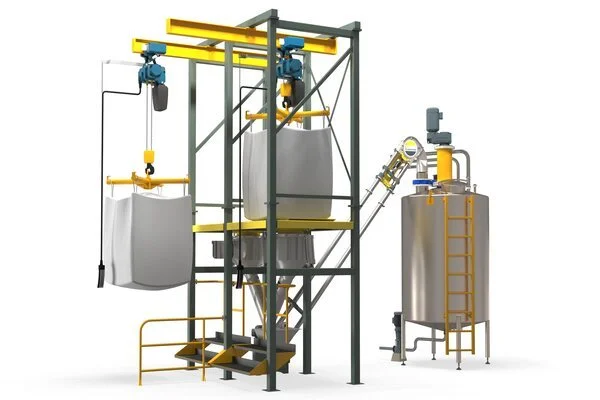The Future of Bulk Material Handling Techniques
The Future of Bulk Material Handling Techniques
Blog Article
Safety Considerations in Bulk Material Handling Operations
The style of bulk material managing gear is constantly changing to generally meet the challenges posed by contemporary industries. From sustainability to automation, the most recent traits in that area showcase exceptional inventions targeted at increasing effectiveness, reducing charges, and handling environmental concerns. Here's a closer consider the crucial developments shaping the future of bulk material handling gear design.
1. Integration of Intelligent Engineering
Intelligent technology ownership, driven by devices and IoT (Internet of Things), has been one of the most notable tendencies in equipment design. Companies are now leaning towards methods that acquire real-time knowledge for monitoring performance, detecting inefficiencies, and predicting maintenance needs. Like, receptors fitted on conveyors or loaders can track throughput charges, identify wear and rip, and reduce sudden downtime.
Intelligent integration not only enhances operational efficiency but additionally presents corporations actionable insights. By leveraging these technologies, companies can improve their workflows and ensure optimum equipment performance with small handbook intervention.
2. Focus on Energy Performance and Sustainability
Sustainability is a critical element operating style trends. Makers are striving to produce gear more energy-efficient to reduce working expenses and comply with stringent environmental regulations. This includes planning hydraulic systems, conveyors, and loaders that eat less power while maintaining high output levels.
Recycling and waste management will also be influencing design changes. Several modern bulk product managing techniques are increasingly being built to guide the usage of recycled materials, ensuring better resource use and less environmental impact. Industries focused on sustainability are significantly seeking such impressive solutions.
3. The Force for Modular and Flexible Techniques
Gone are the times of large, immovable handling equipment. Modular designs are gaining prominence, allowing companies the flexibleness to scale their operations or reconfigure the styles of their flowers based on need. Modular programs permit easier installation, preservation, and updates, somewhat reducing downtime.
Moreover, flexible managing alternatives, such as cellular stackers and articulated loaders, are now being designed to cater to distinctive industrial setups. They give an ideal option for organizations managing various types of bulk components and regular improvements in manufacturing demands.
4. Improved Security Functions
Protection remains a top priority in mass substance handling. Modern equipment styles incorporate improved protection features such as for instance advanced braking systems, emergency prevents, intelligent shutoff systems, and simplified operator controls. Ergonomic changes, like greater individual interfaces and paid off information involvement, also reduce risks for workers.
Many techniques now use AI and unit learning to identify hazards such as for example equipment overheating or conveyor obstructions, triggering automated responses to stop accidents. This proactive method not only ensures team safety but additionally increases equipment longevity.
5. Automation for Smooth Procedures
Automation is revolutionizing how bulk product managing functions are managed. Completely automatic techniques, from automatic arms to self-driving loaders, are lowering the necessity for individual intervention. These scientific advancements offer regular and successful handling, significantly reducing individual errors and work costs.
AI-powered automation has additionally enabled greater route optimization and fill distribution methods, assisting quicker and more specific product movement. Whether it's in mining, structure, or manufacturing, automation is placing a brand new typical in equipment design.

The Future of Majority Material Handling Gear
The developments in volume product managing equipment style reveal a growing demand for performance, adaptability, and sustainability. From adopting intelligent systems to prioritizing security and modular models, the future supports immense potential for innovation. Companies remaining ahead of those tendencies are better positioned to optimize operational performance while aligning with market standards and goals. Report this page